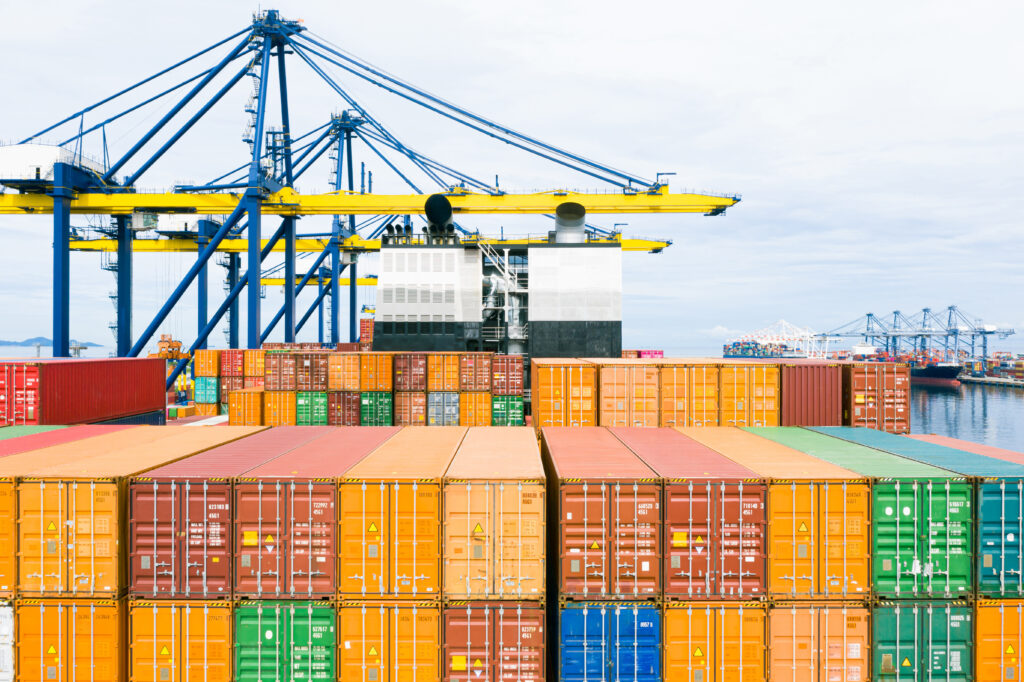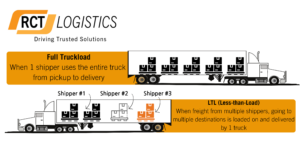How did the transportation industry become what it is today?
In today’s fast-paced world, software and AI are taking over, goods move seamlessly across continents in a matter of days, and talks of tariffs and supply chains monopolize the news cycle. Do you ever wonder how the transportation industry became what it is today?
The modern transportation industry can be attributed to one man’s groundbreaking invention: the shipping container. At RCT Logistics, we pay homage to the visionary Malcom McLean, whose innovation continues to shape the logistics industry and make global trade the efficient behemoth it is today.
The Birth of the Shipping Container Revolutionized Global Trade

Malcom McLean was a North Carolina truck driver with a keen eye for inefficiencies. In the 1930s and 1940s, he witnessed firsthand the cumbersome process of loading and unloading cargo ships. Goods were handled individually, often leading to delays, damage, and increased labor costs. McLean realized that the industry needed a radical change.
In 1956, McLean’s vision materialized when he introduced the first standardized shipping container. He designed metal containers and the corresponding trailer components. These large, reusable metal boxes could be easily loaded onto ships, trucks, and trains, transforming how goods were transported. Malcolm proved the concept by purchasing a steamship company (SeaLand) and shipping 58 containers at once from Newark to Houston. McLean ensured that the containers could be efficiently stacked and transferred between different modes of transportation without the need for constant unloading and reloading, creating “Port-to-Port” and Door-to-Door” concepts still used today. His legacy lives on today through the Maersk SeaLand company.
McLean’s concept of containerization not only streamlined logistics but revolutionized global trade by making it economically viable to manufacture products in one part of the world and sell them in another. This innovation laid the groundwork for the worldwide supply chains we rely on today, enabling businesses to reach new markets and consumers to access a wider range of products.
RCT Logistics: Respecting Innovation
Malcom McLean’s impact on the logistics industry cannot be overstated. His vision and determination turned a simple idea into a cornerstone of modern commerce. At RCT Logistics, we are inspired by McLean’s innovative spirit and strive to carry forward his legacy of efficiency and reliability in every aspect of our operations. We ensure that our clients’ goods are transported swiftly and securely.
Reach out to RCT Today to see how our drayage team can assist with your container shipping.
Reference: https://en.wikipedia.org/wiki/Malcom_McLean



